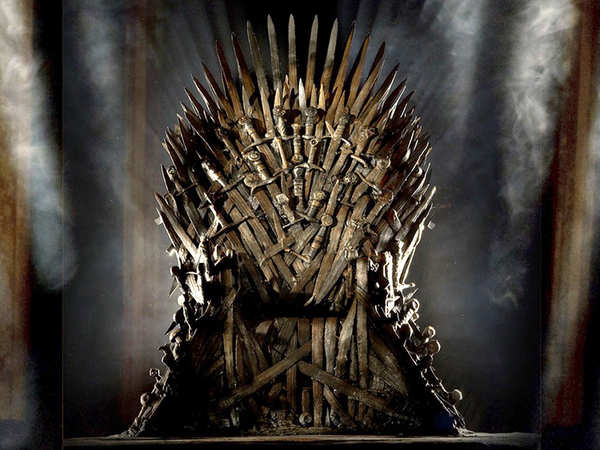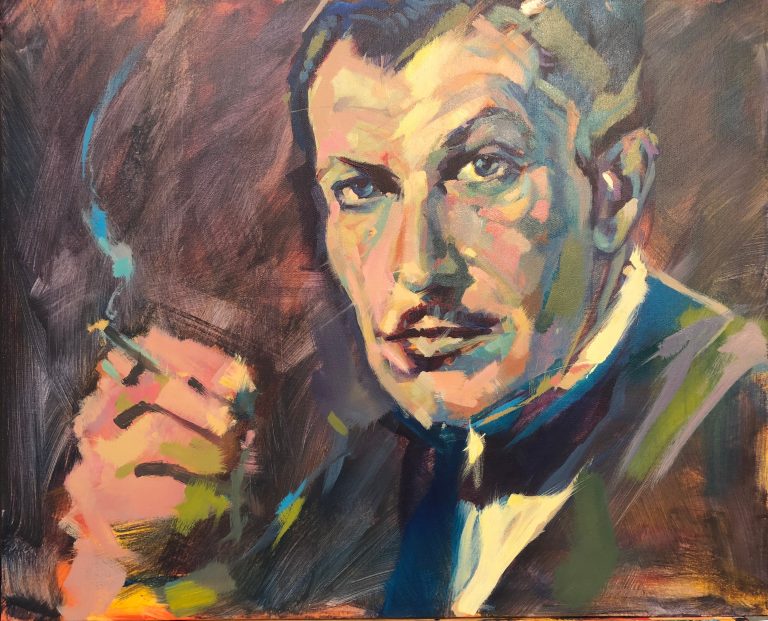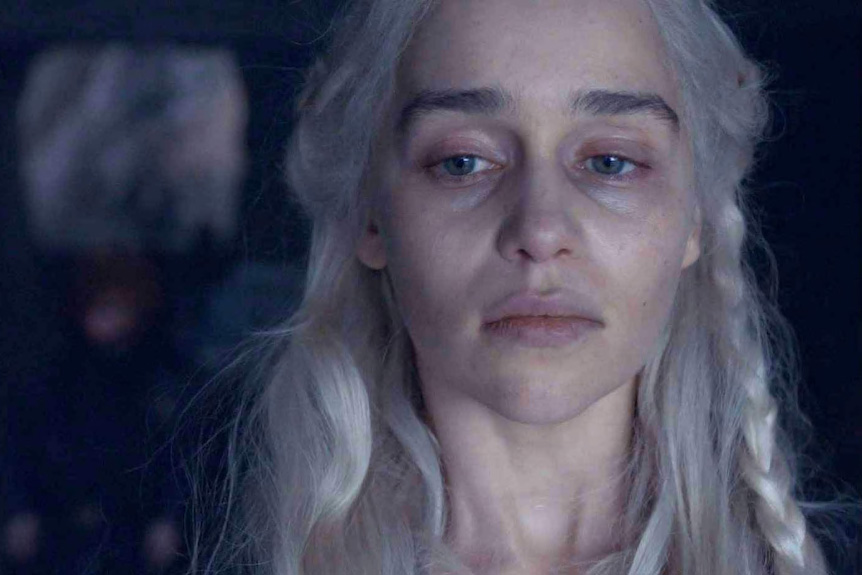
two years ago the finale of Game of Thrones, ‘The Iron Throne’, was released. Below, a transcription of Yezenirl’s video ‘The Power of Stories: How Bran the Broken was Always the Ending’ which can be seen on YouTube:
______ 卐 ______
‘Now is the winter of our discontent, made glorious summer by this son of York’. —Richard III
Tyrion: ‘All hail Bran the Broken, First of his Name, King of the Andals and the First Men, Lord of the Six Kingdoms, Protector of the Realm’ [Editor’s note: in Yezen’s video these italicised words are brief audiovisual clips of different scenes; the sentences between the brackets are mine].
I do get it. David Benioff and D.B. Weiss aren’t great writers. The ending was rushed, Season Eight was sloppy, and frankly I thought Season Six and Seven felt like fan-fiction. So it should come as no surprise that there’s a lot of complaints and confusion about the ending.
Still, Tyrion was right about one thing: stories are powerful. There’s nothing like a good story. And now, it seems there’s nothing like a bad one either. Yet, somehow Game of Thrones managed to be both. For years now it shocked us, captivated us, angered us and brought us together. And for all the flaws of the final season, this is the story we got. Books aside, all we can do now is to decide what to make of what the show gave us.
I know for many that means dissecting where the writers went wrong, and I’ll eventually get to that, but as for right now, I’m not interested in just joining the chorus of fanboy rage. Instead, as a guy who did call King Bran [Yezen was the only one who correctly predicted who would become king in the finale], let me try to explain why this was always the direction the story was headed, and try to make sense of just what the ending meant, as broken as it may have been.
Bran was always meant to climb to the top. And it’s pretty clear upon re-reading the first book that this was always the plan. Personally, I figured this several years ago, when George R.R. Martin’s editor Anne Groell revealed that Bran’s end point was the only one she knew.
Obviously, certain things will differ in the books. I expect how he’s chosen will be a little bit different, as well as how he acts, and book-Bran will probably rule from Harrenhal, not King’s Landing. But the question most people have is, what does this mean? Why write this tale of handsome princes and beautiful conquerors only to end with a crippled King?
One reason why King Bran is so controversial is that he’s probably the most poorly understood major character in the story. Bran’s character arc, at its core, is pretty straightforward: he’s a reference to Bran the Blessed, Frodo Baggins, and Rainbow Crow. It’s the tale of a boy who was deemed so broken by a society that he’s even mocked for not killing himself. So, believing the world will never have a place for him, he struggles to see value in his own life, eventually going beyond the Wall in search of purpose, merging with a godhood [the old religion] and fighting against the apocalypse [the white walkers]. Much like the audience, the Seven Kingdoms doesn’t really understand what Bran has become, or how he helped save the world.
Yet, when Bran returns, the Kingdom was broken just like him. And all of the things that once made him useless to the militaristic culture of Westeros, now make him the ideal Fisher King: an incorruptible figurehead to help usher in a new system. And thus, Bran the Broken is immortalised as a story around which the Kingdoms of Westeros can unite. The bittersweet irony is that when Bran is finally celebrated, he’s too consumed by godhood to feel his own triumph.
Bran: ‘You shouldn’t envy me. Mostly, I live it in the past’.
Bran’s emotional distance from the audience is very much the point. And so is the abruptness of his coronation. Bran’s arc doesn’t move towards Kingship; it’s the arc of the Seven Kingdoms that moves toward Bran the Broken. Essentially, the message here is one of humility—a reminder that each of us is bound by blessed and cursed fates. A once ridiculed woman (Brienne) can become the truest of knights [transcriber’s note: this is bullshit feminism], a despised imp (Tyrion) can be a brave hero, an exiled girl (Dany) can become a great liberator—and a great liberator (also Dany) can become an unstoppable tyrant. The capacity of outcasts to rise and fall means that we must learn to see value in everyone, including the cripples, bastards and broken things.
Of course, the big question about King Bran is whether he planned it all out. Was Bran a puppet master, or was he a puppet who could see the strings? Did the Three-Eyed Raven manipulate events to put itself into power?
Bran: ‘Why do you think I came all this way?’
Well, maybe?
The former Three-Eyed Raven [Ser Brynden Rivers in Martin’s novels, called Lord Bloodraven] seemed to know that Bran would eventually be Lord of the Seven Kingdoms, and hinted at it back in Season Six:
‘You won’t be here forever. You won’t be an old man in a tree’.
But in Season Seven, Bran seemingly doesn’t see it, and often admits to not knowing things.
Bran: ‘I can never be Lord of Winterfell. I can never be Lord of anything’ [words to Sansa in Season 7].
Bran: ‘I don’t know. No one’s ever tried’ [words of season 8, episode 2].
Bran: ‘His last name isn’t really Snow. It’s Sand’ [words to Sam in season 7, episode 7].
Bran: ‘I need to learn to see better’ [words to Sansa under Winterfell’s weirwood tree].
So, it’s likely that if the Three-Eyed Raven did set things up, then for Bran it’s something like a half-remembered dream. That said, in Jon’s final dialogue, we do get one last hint that the Three-Eyed Raven was in fact the Lord of Light.
Jon: ‘I’m sorry I wasn’t there when you needed me’.
Bran: ‘You were exactly where you were supposed to be’.
This interaction references several conversations about characters serving the Lord’s purpose. And thus seems to imply that the Lord of Light’s plan was also the Three-Eyed Raven’s plan. So, Jon was in fact there for Bran all along, as a soldier in the Three-Eyed Raven’s war, which provides the closest thing we can get to an answer over that burning question: Did Bran do anything, or did Bran do everything? [Transcriber & editor’s notes: Here follows a few words we won’t quote that Yezen apparently picked up from an episode in Futurama where God speaks to the main character.]
By leaving Bran’s actions ambiguous, the story actually upholds the choices made by the characters. After Hodor, Bran seemingly learns to never again violate another human being’s autonomy. So, regardless of whether the characters were playing the Raven’s game, or whether this universe is just random, each of them had free will and made their own choices.
The big misconception here is the idea that the problem of ruling has been resolved by a god, when in actuality Bran doesn’t solve the problem of ruling. He’s mostly a figurehead who subtly empowers people to fix the world themselves. The problem of ruling is left to Tyrion and his council of former outcasts.
Which brings me to the third element that needs to be discussed, which is the small thing Bran does bring to the table. In my prediction video [see our transcript: here] I talked about Bran’s wisdom as capacity for understanding. But the ending, rushed as it was, suddenly brought up another thing which I really hoped it would. And that is the nature of justice. Throughout the episode, there’s the dilemma presented about what justice really means. Can we forgive those who have done us wrong? Is the world we need one of mercy?
If you recall, Game of Thrones begins with Bran going to see his first execution: a man has deserted the Night’s Watch. As is the law, Lord Eddard Stark hears his last words and executes him. Afterwards, Ned prompts Bran that one day this justice will fall to him. And in the end, it does. But where the story opens on an act of retributive justice—a form of justice framed around punishment—Bran’s first act as King is to shift his Kingdom towards a justice that is more restorative, as in, justice which focuses on rehabilitating the offender and reconciling with the community.
Grey Worm: ‘This man is a criminal. He deserves justice’.
Bran: ‘He just got it. He’s made many terrible mistakes. He’s going to spend the rest of his life fixing them’.
Justice for Tyrion is to fix the problems he’s brought upon Westeros, by becoming Hand of the King. Justice for Jon is to return to the place he functioned best and act as King-beyond-the-Wall. Once again, Bran puts Jon exactly where he’s supposed to be. And while the show explore these ideas so sloppily that it’s hard to register, there’s really nothing we can do about that. The time where internet rage [the fans hated this season as Yezen explains: here] could have shifted the direction of the show’s writing is long gone. And I understand why that’s a frustrating reality for so many: especially those who’ve invested a ton of time and thought into this story. But all we can do now is try to make the most of the ending we got. Maybe I’m a little number to this because I’ve not been a fan of the writing for the past three seasons. For me, I’ve mainly looked at the show as a spoiler-filled preview of books that may never come.
Sam: ‘A Song of Ice and Fire’.
And you know, from that perspective, there’s a lot to be hopeful for about the ending. King Bran feels so true for Martin’s philosophy that I can no longer see how the ending could have been anything else. So although the Kingdoms of Westeros have been broken by war, it seems they may have learned a little something along the way. And you know? Hopefully we did too.
Jon: ‘It doesn’t feel right’.
Tyrion: ‘Ask me again in ten years’.
Anyways I got more content coming… In the meantime I’m also kind of sad that the ending turned out being so unpopular. And I hope this helped. Peace out. Thanks for watching.
 After minute 35 the American Jared Taylor talks about the founding fathers of his country and even mentioned Eisenhower as someone congenial to white interests! Compare this to what I say in ‘The Iron Throne’ that is now a kind of sticky post for this site, and to one of the final chapters of Pierce’s book that I have been linking to lately (where he also talks about the psychological toll of the Second World War).
After minute 35 the American Jared Taylor talks about the founding fathers of his country and even mentioned Eisenhower as someone congenial to white interests! Compare this to what I say in ‘The Iron Throne’ that is now a kind of sticky post for this site, and to one of the final chapters of Pierce’s book that I have been linking to lately (where he also talks about the psychological toll of the Second World War).



